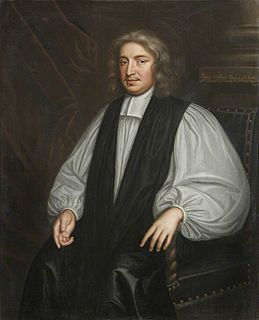Sir Robert Moray FRS was a Scottish soldier, statesman, diplomat, judge, spy, freemason and natural philosopher. He was well known to Charles I and Charles II, and the French cardinals Richelieu and Mazarin. He attended the meeting of the 1660 committee of 12 on 28 November 1660 that led to the formation of the Royal Society, and was influential in gaining its Royal Charter and formulating its statutes and regulations.

William Croone was an English physician and one of the original Fellows of the Royal Society.

Viscount Brouncker, of Lyons in the Province of Leinster, was a title in the Peerage of Ireland. It was created on 12 September 1645 for the courtier Sir William Brouncker. He was made Baron Brouncker, of Newcastle in the Province of Munster, at the same time, also in the Peerage of Ireland. He was succeeded by his eldest son William, the second Viscount. William was a distinguished mathematician, who was the first President of the Royal Society and also held political office. He was unmarried and was succeeded by his younger brother Henry, the third Viscount. Henry served as Cofferer of the Household between 1680 and 1685, but was universally detested as being "false, hard and covetous". He was childless and the titles became extinct on his death in 1688.

Henry Brouncker, 3rd Viscount Brouncker was a Restoration-era medical doctor, courtier, politician, and civil servant. He served as Cofferer of the Household to Charles II, and served as Gentleman of the Bedchamber to James, Duke of York. He was a member of parliament and a very skilled games player.
The Gresham Baronetcy, of Lympsfield in the County of Surrey, was a title in the Baronetage of England. It was created on 31 July 1660 for Marmaduke Gresham, Member of Parliament for East Grinstead and Bletchingley. He was a descendant of Sir John Gresham, Lord Mayor of London. The second Baronet was also Member of Parliament for Bletchingley. The title became extinct on the death of the sixth Baronet in 1801.
Sir Marmaduke Gresham, 1st Baronet was an English politician who sat in the House of Commons in 1660 and from 1685 to 1689.
Sir Paul Neile FRS was an English astronomer and politician who sat in the House of Commons in 1640 and from 1673 to 1677.







